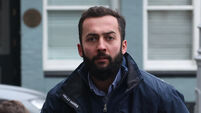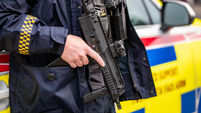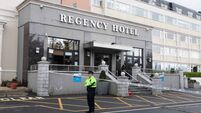Taking on the 'kingpins' of gangland and taking out their 'hit teams'

The Monk's arrest may give Daniel Kinahan (pictured) and others cause to think they’re next. Picture: Collins Dublin
Last February, the Garda’s top gangland chief was put under sustained questioning by the media as to why – some five years on – no one had been convicted from the infamous murderous attack on the Regency Hotel in Dublin.
This seeming failure sparked commentary, and some sharp criticism, of the gardaí, and came two years after the only prosecution to date – that of Patrick Hutch – suddenly collapsed in the Special Criminal Court in the wake of the tragic death through suicide of the lead garda investigator.














